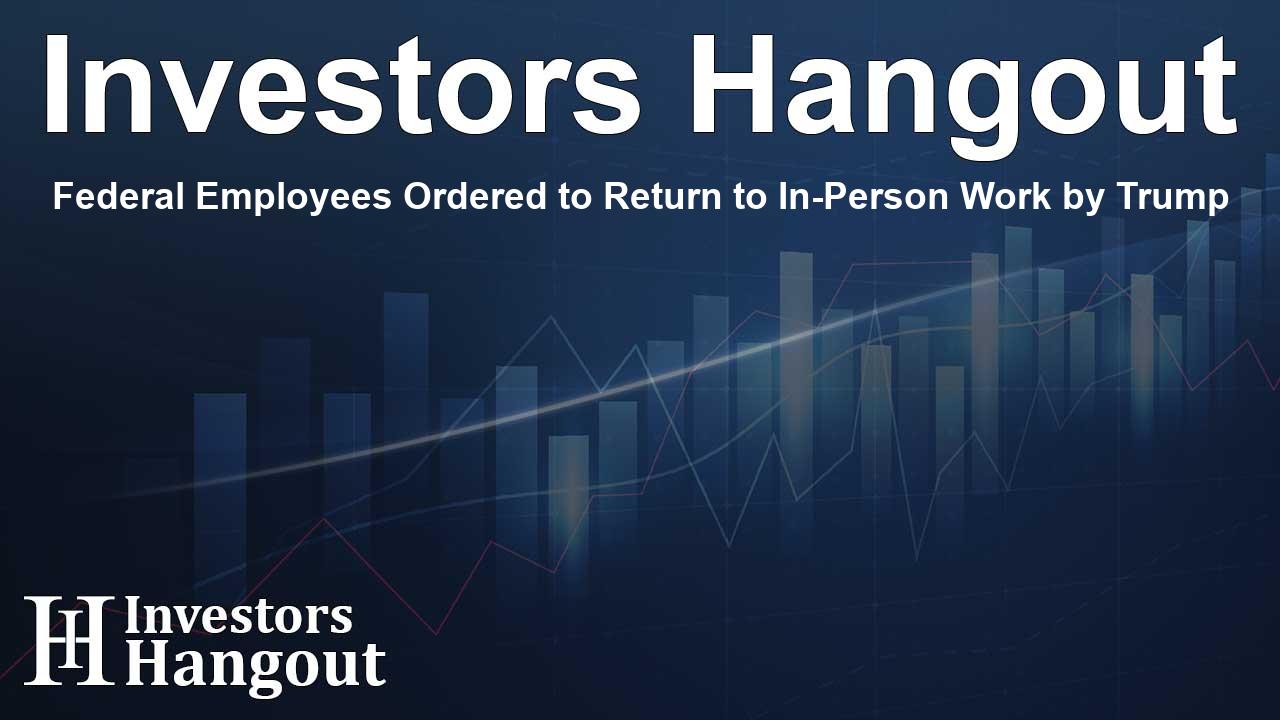Federal Employees Ordered to Return to In-Person Work by Trump

Trump's Directive for Federal Workers to Return to Offices
By Raphael Satter
In a decisive move, President Donald Trump has mandated that federal employees return to their workplace full-time. This directive was announced during an event at a major venue in Washington, D.C., drawing significant attention and applause from supporters.
The executive order rolls back the widespread remote working arrangements that became common during the early COVID-19 pandemic. Many white-collar government employees will now need to adjust to an in-person work environment again, causing a shift in workplace dynamics.
Implications of the Return-to-Office Mandate
Trump's allies have suggested that the return-to-office requirement could be part of a broader strategy to reshape the civil service. The intent behind this could be to facilitate the replacement of long-standing employees with individuals aligned more closely with his administration's goals.
In a public statement from the White House, Trump instructed department and agency leaders to move swiftly in terminating remote work arrangements. He emphasized the need for employees to return to their offices on a full-time basis while allowing department heads to consider necessary exemptions.
Reactions from Major Industry Leaders
Notably, Tesla CEO Elon Musk expressed his thoughts on the matter. Musk, who has been vocal about cost-cutting measures, predicted that the end of remote working privileges would lead to a significant number of voluntary resignations, a development that he would welcome within his organization.
Future Outlook for Federal Work Policies
The implications of this executive order could reshape federal employee policies for years to come. As government workers navigate this transition, there may be a variety of responses to the return-to-office directive. The potential for employee dissatisfaction or upheaval remains a key consideration as agencies implement these changes.
Frequently Asked Questions
Why did Trump order federal workers back to the office?
Trump believes that requiring full-time attendance will help reshape the civil service and reinforce loyalty within government positions.
What might be the impact of this order on employees?
Employees may feel forced to adapt to in-person work, potentially leading to dissatisfaction and voluntary departures.
How did industry leaders react to the news?
Industry leaders like Elon Musk have predicted that this move may trigger voluntary resignations among employees.
Are there exemptions to the in-person requirement?
Yes, department heads have the discretion to grant exemptions based on individual circumstances.
What was the context behind this order?
The order comes in response to changing work dynamics established during the COVID-19 pandemic and aims to restore traditional work models.
About The Author
Contact Addison Perry privately here. Or send an email with ATTN: Addison Perry as the subject to contact@investorshangout.com.
About Investors Hangout
Investors Hangout is a leading online stock forum for financial discussion and learning, offering a wide range of free tools and resources. It draws in traders of all levels, who exchange market knowledge, investigate trading tactics, and keep an eye on industry developments in real time. Featuring financial articles, stock message boards, quotes, charts, company profiles, and live news updates. Through cooperative learning and a wealth of informational resources, it helps users from novices creating their first portfolios to experts honing their techniques. Join Investors Hangout today: https://investorshangout.com/
The content of this article is based on factual, publicly available information and does not represent legal, financial, or investment advice. Investors Hangout does not offer financial advice, and the author is not a licensed financial advisor. Consult a qualified advisor before making any financial or investment decisions based on this article. This article should not be considered advice to purchase, sell, or hold any securities or other investments. If any of the material provided here is inaccurate, please contact us for corrections.
